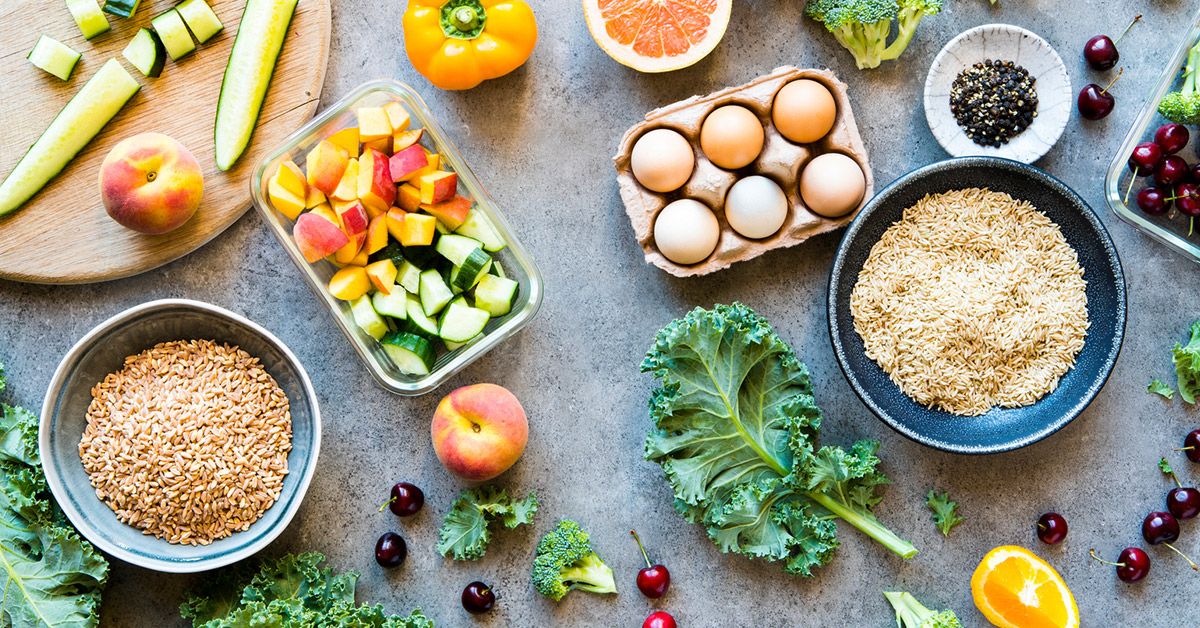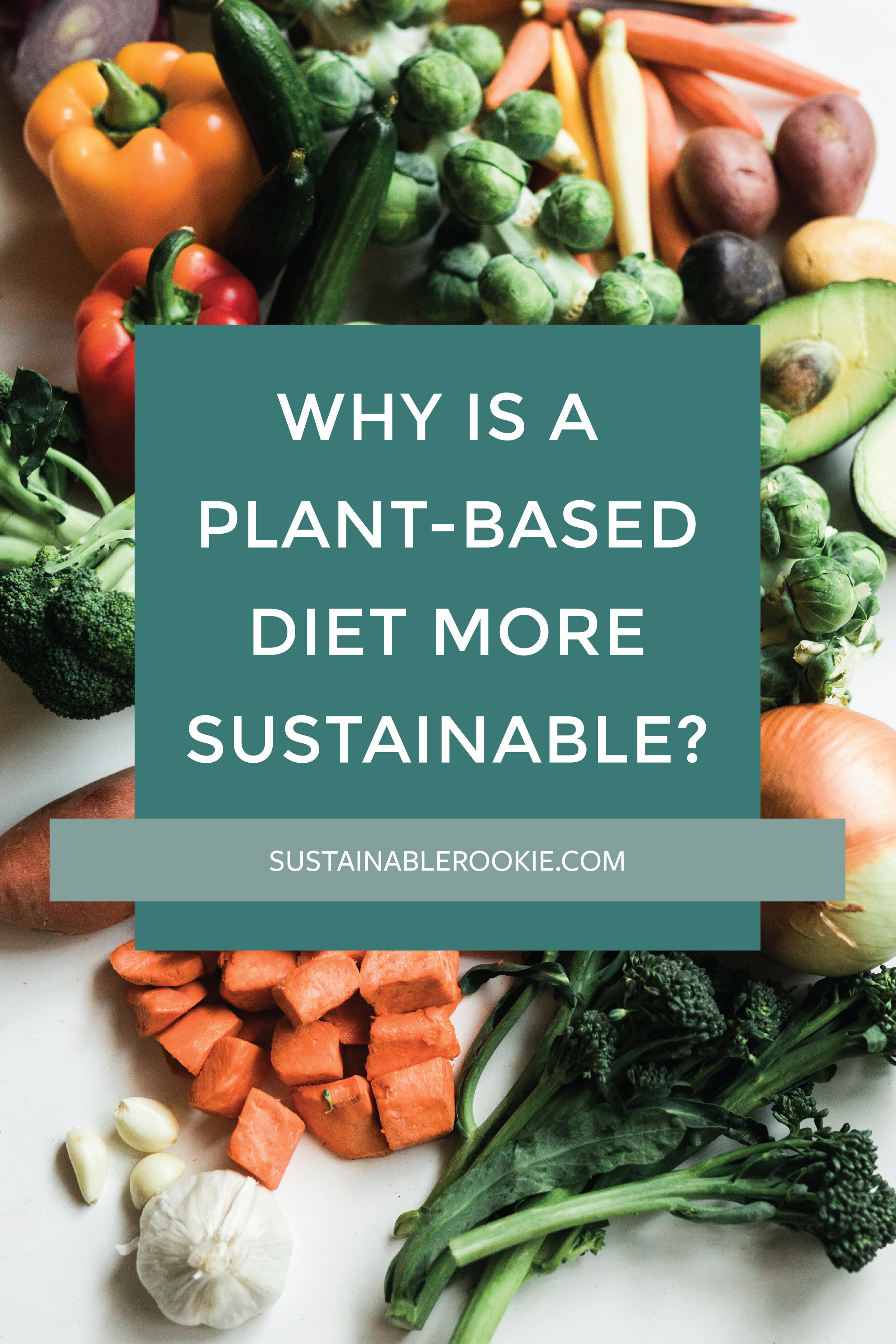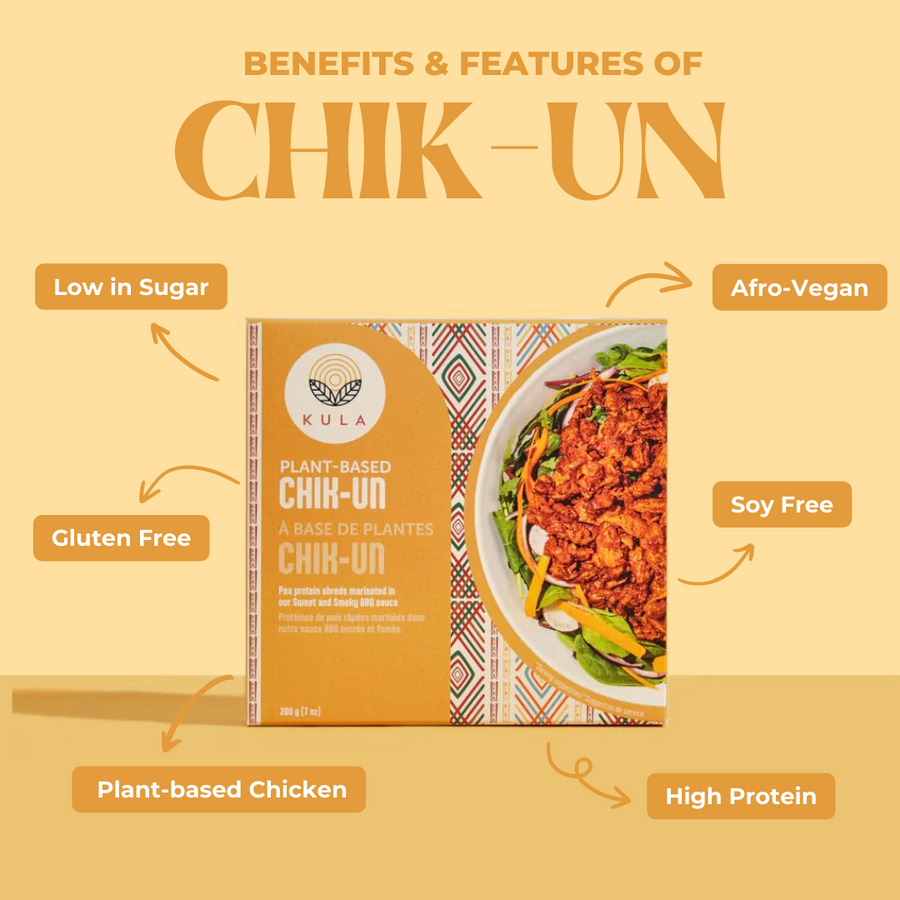A Beginner’s Guide to Cooking With Plant Based Chicken at Home
Wiki Article
Everything About Healthy And Balanced Food: Advantages of Checking Out Plant Based Alternatives
The conversation bordering plant-based diet plans has acquired significant attention in recent times. Several people are checking out the prospective health benefits, dietary benefits, and environmental impacts related to these dietary choices. As individuals come to be a lot more knowledgeable about their food's influence on well-being and sustainability, concerns occur about the usefulness of embracing such a way of life. What specific adjustments can one anticipate, and exactly how might these choices reshape not only individual health and wellness but additionally the world's future?Understanding Plant-Based Diet Regimens
Several people link plant-based diet plans mostly with vegetarianism or veganism, these diet plans can incorporate a large range of eating patterns that focus on whole, minimally refined plant foods. Such diets usually include fruits, veggies, whole grains, seeds, nuts, and legumes, while eliminating or restricting pet products. This versatility permits individuals to customize their nutritional choices according to individual choices and nutritional requirements. Some might adopt a mainly plant-based diet regimen while still occasionally consuming meat or dairy products, usually referred to as a flexitarian method. The emphasis continues to be on incorporating more plant foods, which can cause a varied selection of meals and flavors. Recognizing these various interpretations of plant-based eating is crucial for valuing its accessibility and charm in contemporary food society.Wellness Conveniences of Plant-Based Foods
The health benefits of plant-based foods are significant, providing a nutrient thickness benefit that supports overall well-being. Research indicates that these foods can improve heart health and play a vital function in efficient weight monitoring. By including extra plant-based alternatives, people might improve their dietary options and promote long-term health.Nutrient Thickness Benefit
Nutrient thickness plays a crucial duty in the wellness advantages of plant-based foods, making them a compelling choice for those seeking a well balanced diet regimen. Plant-based foods, such as fruits, veggies, vegetables, nuts, and whole grains, are frequently rich in essential vitamins, minerals, and antioxidants while being reduced in calories. This high nutrient thickness enables individuals to eat less calories while still satisfying their nutritional needs. In addition, these foods are loaded with dietary fiber, promoting digestive wellness and helping in weight administration. By incorporating nutrient-dense plant-based alternatives, customers can enhance their total health, sustain their immune systems, and lower the danger of chronic conditions. Eventually, the nutrient density of plant-based foods emphasizes their value in a health-conscious lifestyle.Heart Wellness Enhancement

Weight Management Assistance
Along with advertising heart health and wellness, a plant-based diet regimen can significantly aid in weight monitoring. This dietary strategy highlights entire foods such as fruits, vegetables, beans, nuts, and entire grains, which are usually lower in calories and greater in fiber compared to animal-based items. The high fiber content assists increase satiety, reducing general calorie intake. Plant-based diets are commonly abundant in vital nutrients while reduced in unhealthy fats, making it simpler to keep a healthy and balanced weight. Research suggests that people that adopt a plant-based way of life often tend to have reduced body mass indexes (BMIs) and experience more successful weight management contrasted to those that consume meat-heavy diet plans. Embracing plant-based choices is a calculated selection for reliable weight monitoring.
Nutritional Value of Plant-Based Ingredients
Plant-based ingredients are rich in vital nutrients, using a varied selection of vitamins, minerals, and anti-oxidants that add to total wellness. A contrast of healthy protein resources discloses that while pet items are commonly deemed superior, many plant-based options provide adequate protein and various other advantageous compounds. Understanding the nutritional value of these active ingredients can assist individuals make informed nutritional choices.Essential Nutrients in Plants
Nutrient-rich ingredients discovered in plants offer a diverse array of vital minerals and vitamins that contribute substantially to overall health and wellness. These active ingredients are rich in vitamins A, C, and K, which sustain immune feature, vision, and blood clotting, respectively. On top of that, plants offer essential minerals such as calcium, magnesium, and potassium, vital for heart health and wellness, muscle mass function, and bone toughness. The existence of fiber in plant-based foods aids digestion and advertises a healthy and balanced gut microbiome. Anti-oxidants, discovered generously in veggies and fruits, help fight oxidative stress and anxiety and minimize inflammation. Lots of plant foods are low in calories yet high in nutrients, making them an excellent selection for those seeking to preserve a healthy and balanced weight while making sure ideal nutrient consumption.
Comparing Healthy Protein Resources
Healthy protein resources vary significantly in their dietary profiles, with plant-based ingredients providing distinct advantages. Unlike animal proteins, which often contain saturated fats and cholesterol, plant proteins have a tendency to be reduced in these undesirable components. Legumes, nuts, seeds, and whole grains are rich in important amino acids, fiber, vitamins, and minerals. For instance, lentils give high healthy protein web content along with considerable iron and folate, while quinoa is a complete healthy protein, providing all nine essential amino acids. In addition, plant-based proteins are often come with by antioxidants and phytochemicals that support general wellness. The shift to plant-based healthy protein sources not only boosts nutritional consumption but additionally lines up with sustainable dietary techniques, minimizing ecological effect and promoting long-lasting health benefits.Environmental Impact of Plant-Based Eating
As recognition of climate adjustment expands, several individuals are checking out lasting dietary options that can significantly decrease their environmental footprint. Plant-based consuming has actually emerged as a significant contributor to reducing greenhouse gas discharges, which are largely connected with animals production. The cultivation of fruits, vegetables, beans, and grains commonly requires fewer resources, such as water and land, contrasted to pet farming. Additionally, plant-based diet plans can cause lowered deforestation, as less land is needed for grazing animals or expanding pet feed. By changing in the direction of plant-based options, consumers can sustain biodiversity and advertise much healthier ecosystems. In general, welcoming plant-based consuming not just advantages individual health and wellness but likewise represents an essential action toward ecological sustainability and preservation initiatives.her explanation
Overcoming Common Misconceptions
While lots of people identify the advantages of a plant-based diet, a number of mistaken beliefs often prevent them from fully embracing this lifestyle. An usual idea is that plant-based diets do not have enough protein; however, countless plant sources, such as beans, nuts, and tofu, offer ample protein. In addition, some presume that this diet plan is costly, when as a matter of fact, staples like beans, rice, and seasonal vegetables can be fairly cost effective. Another false impression is that plant-based consuming is extremely limiting, whereas it in fact offers a varied range of foods and flavors. Numerous worry that a plant-based diet might lead to shortages, yet with proper preparation, individuals can get all needed nutrients, including vitamins and minerals, while enjoying a large variety of scrumptious meals. Broad Tips for Transitioning to a Plant-Based Way of living Making the shift to a plant-based way of living can be an enhancing experience, though it commonly calls for some assistance to browse the initial adjustments. People are encouraged to begin slowly, including more fruits, vegetables, beans, and entire grains right into their meals while minimizing meat and milk consumption. Meal preparation is essential; preparing a regular food selection can help relieve the change and protect against last-minute unhealthy options. Discovering brand-new dishes and cooking methods can additionally enhance the experience and preserve excitement regarding plant-based eating. Furthermore, joining support teams or areas can give inspiration and share important ideas. Staying notified regarding nutrition guarantees balanced meals, stopping shortages while promoting a healthy and balanced, enjoyable plant-based way of life.
Delicious Plant-Based Meal Ideas
Discovering tasty plant-based meal concepts can motivate individuals to welcome a more healthy diet regimen. One preferred option is a passionate quinoa salad, including cherry tomatoes, cucumber, and a tangy lemon-tahini dressing. An additional favorite is a mouthwatering lentil stew, loaded with carrots, celery, and fragrant herbs, ideal for a reassuring supper. For morning meal, overnight oats made with almond milk, chia seeds, and topped with fresh berries supply a healthy beginning to the day. Additionally, a dynamic vegetable stir-fry with tofu and a range of vivid veggies can be a fast yet pleasing meal. Luscious avocado salute on whole-grain bread, sprayed with spices and seeds, provides a straightforward yet tasty snack. These meals showcase the over at this website variety and richness of plant-based eating.
Regularly Asked Inquiries
Can a Plant-Based Diet Plan Give Sufficient Protein?
The question of whether a plant-based diet regimen can offer sufficient protein prevails. Countless sources, consisting of vegetables, nuts, seeds, and entire grains, can satisfy protein requires effectively, sustaining a balanced and nourishing diet for people.Are Plant-Based Diet Plans Suitable for Kid?
The suitability of plant-based diet plans for kids depends upon careful preparation. Adequate nutrients need to be guaranteed, consisting of vitamins, proteins, and minerals. With proper advice, such diets can sustain healthy and balanced growth and growth in children.Exactly how Do I Eat in restaurants on a Plant-Based Diet regimen?
Dining out on a plant-based diet regimen includes looking for restaurants with diverse food selections, asking for alterations, and checking out vegan-friendly alternatives. Planning ahead and interacting nutritional preferences can enhance the dining experience while keeping nutritional choices.What Prevail Irritants in Plant-Based Foods?
Usual allergens in plant-based foods include soy, gluten, nuts, and seeds - BBQ Sauces. Individuals following a plant-based diet plan must understand these allergens and read labels very carefully to stay clear of damaging responses and guarantee safe consumptionCan Plant-Based Diets Assist With Fat Burning?
Study indicates that adopting a plant-based diet may help with weight-loss because of its commonly reduced calorie thickness and greater fiber material. This mix can improve satiety, assisting individuals manage their caloric intake effectively. Many individuals link plant-based diet regimens mostly with vegetarianism or veganism, these diet regimens can include a large variety of eating patterns that prioritize entire, minimally refined plant foods. Nutrient thickness plays a necessary function in the health and wellness benefits of plant-based foods, making them an engaging selection for those looking for a balanced diet. Plant-based diet regimens click here now have actually been shown to significantly improve heart health, as they often have components that support cardiovascular feature. In addition to advertising heart wellness, a plant-based diet plan can considerably assist in weight administration. A typical idea is that plant-based diet plans lack adequate healthy protein; nonetheless, many plant sources, such as beans, nuts, and tofu, give enough protein.Report this wiki page